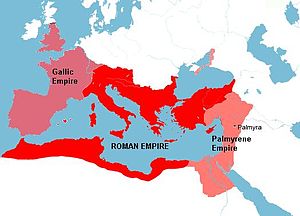Chaos and insecurity would accompany a catastrophic shock to the social order. Fear of the future would occur next as we retreated inward and switched from planning for the tomorrow’s aspirations to becoming enmeshed in the struggle for daily survival. Economic conditions can change overnight following a universal jolt to the social order. Could America lose the privilege of having a surplus of food and sustenance suddenly in 2012? Would competition for food cause us to turn violent if scarcity becomes a reality to us who are accustomed to plenty?
For thousands of years civilization has meant cities. Cities typically have disappeared suddenly from earthquake, volcano, tornado, large waves if by the sea, and war. Biological epidemic and sudden climate change are also potential destroyers of cities. Could civilization as we know it survive a climate change of twenty degrees on average? Can famine still destroy civilization?
Ancient Roman civilization followed the pattern of begin, flourish, and eventually disappear. The cities eventually came back, but not quite as Roman civilization. Following the destruction of Western Roman civilization circa 476 an attempt was made to revive the old Roman world by the Eastern Emperor Justinian. Despite his military and political efforts the attempt failed and in 541 a plague, probably bubonic, killed up to 100 million people. Much later in 1348 in Western Europe bubonic plague again destroyed tens of millions of people and destroyed the economic system of feudalism. Somehow civilization survived and eventually many of the same cities that had endured both plagues flourished.
It took British historian, Edward Gibbon, in the Rise and Fall of the Roman Empire, six lengthy volumes to describe and analyze the reason for the decline and fall of Roman civilization. However among the traditional explanations are the ennui and disillusionment of the citizens of Rome. The exhaustion of the optimism of the citizens of Rome was a factor in the fall of Roman civilization.
American civilization has meant will and optimism about the future, a sense of destiny, and creative energy to meet all challenges. Since at least 1783 Americans have had a sense of permanency and a determined will to grow our cities and promote civilization and culture on the continent.
Despite any catastrophic changes brought about in 2012 by unknown disruptions to civilization, human intelligence would continue. But would we have the will to look forward if we all suddenly left our houses and cities with only what we could carry?
Gibbons, the historian, philosophizing on the fall of Rome, in volume 31, Rise and Fall … ” There exists in human nature a strong propensity to depreciate the advantages, and magnify the evils of the present times.” Sitting here in 2010, is catastrophe in 2012 a product of our ennui and our disillusionment?
Every year is a new adventure. Drink a little wine tomorrow, enjoy your favorite things and buy a present for your Granddaughter. Unknown potential causes lurk ahead. Whether driven by the divine hand, benign nature, or statistical probability, we have little ability to control our destiny. Every year is also more potential suffering for us humans.
Will you be able to pass civilization on to your children and grandchildren? If you were rushing from your home suddenly in 2012, carrying a few treasures of your existence, how would you view the future and how would you remember your past?




